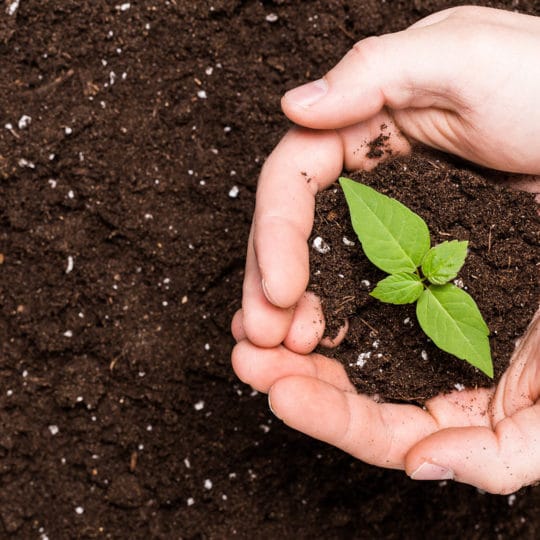Fall Soil Care
Prep Now for Spring
Posted
October 26, 2023

Fall is a time for harvest. You may be bringing in the last round of veggies from the garden and trimming back the dried-up flowers. Even though this growing season is coming to an end, it’s a great time to start thinking about next year. Late fall soil care is an important part of preparing for spring. Here’s why.
Full-Circle Gardening
Any successful garden starts with healthy soil. Don’t think of it as dirt. Soil is living organic material that fuels your garden from the ground up. This is why it’s important to replenish it every year so it maintains its nutrients to feed your plants.
Another great thing about fall is that it provides you with some of the best composting materials. See those leaves on the ground? Ground them up! They’re natural too, and so when they decompose, they add nutrients back to the soil they sprung from.
What about all those veggies you’ve harvested from your garden? Take the vines, stalks, and food scraps and add them to the compost pile. The beautiful thing about gardening is that it’s a living cycle of growth and regrowth.
Fall Soil Care
Why now? When you add organic materials to the soil in the fall, it gives it time to decompose over winter. By the spring, the soil is so high in nutrients that it slowly uses over time. This helps improve root growth, which is literally the root of a great growing season.
Here are some tips to consider this fall to help improve your soil for spring.
- To Till or Not to Till. Tilling is the act of breaking up the soil to increase air flow and quickly break down organic materials. For small gardens and raised beds, tilling may not be the best solution since it can kill earthworms and create erosion. It’s easier to remove weeds and debris by hand. Then add a layer of compost on top and lightly turn the soil to mix it in. For larger gardens, don’t worry about digging up old plants. Just add organic matter over what’s there before you till. You can also just cover the soil with mulch to prevent weeds from reseeding.
- Cover the Garden. If you think about it, old plants aren’t removed every season in nature. They’re left to decompose and return in the spring. The same can be done in your garden. If you remove the plants, bare soil erodes and nutrients are washed away. If the garden is covered in compost, leaves, or mulch then not only will the soil be richer in nutrients, but there’s less chance of erosion and weeds have a tougher time coming back.
- Testing the Soil. To ensure your soil is at optimal health, you can test its nutrient levels. This way, you’ll know what it’s lacking and replenish it before trying to grow anything else next year. You can purchase home testing kits or have a professional run the tests for you. A pro will know the best levels for growing different plants and the best way to add what’s needed.
Professional Soil Care
Just as you consult a doctor for the best ways to better your health, there are lawn care professionals that can help bring your soil back to life. Contact Elite Tree Care for more tips on testing, tilling, and strengthening your soil. How you prep now can bring about a more bountiful growing season next year.